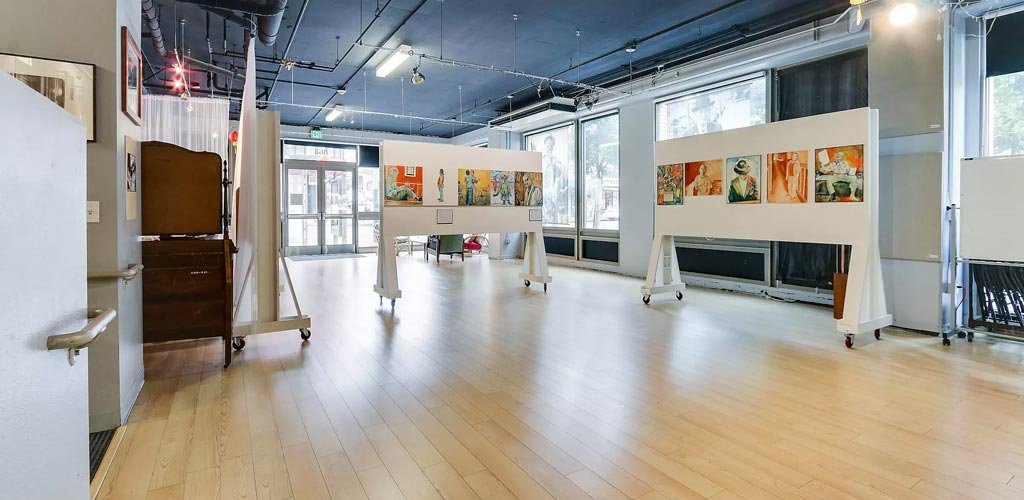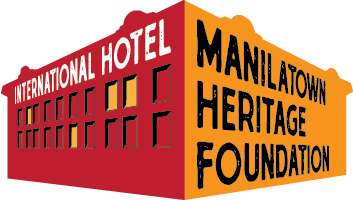
ABOUT THE INTERNATIONAL HOTEL MANILATOWN CENTER
We, the Manilatown Heritage Foundation, acknowledge that we are on the unceded ancestral homeland of the Ramaytush Ohlone who are the original inhabitants of the San Francisco Peninsula. As the indigenous stewards of this land and in accordance with their traditions, the Ramaytush Ohlone have never ceded, lost nor forgotten their responsibilities as the caretakers of this place, as well as for all peoples who reside in their traditional territory. As Guests, we recognize that we benefit from living and working on their traditional homeland. We wish to pay our respects by acknowledging the Ancestors and Relatives of the Ramaytush community and by affirming their sovereign rights as First Peoples.
The Manilatown Heritage Foundation’s core program is to honor the legacies of San Francisco’s historic Manilatown neighborhood and the 1977 International Hotel Eviction by maintaining the International Hotel Manilatown Center as both a community museum honoring these legacies and a multipurpose arts, culture and educational gathering space for creative expressions relevant to today’s community.
“The International Hotel Manilatown Center is the historic site of the community struggle to save the International Hotel and prevent the eviction of its elderly residents from 1968-1977. The block at Kearny and Washington Streets, adjacent to Chinatown and the current Hilton Hotel, became a focal point in the creation of the contemporary Asian American movement, especially for Filipino Americans and San Francisco’s housing justice movement.
Filipino American youth from San Francisco State University and UC Berkeley and artists and community activists found their ‘roots’ in the stories and lives of the ‘Manongs’ (respected immigrant elders). The anti-eviction/anti-displacement struggle became a key site for the formation of a distinct Filipino American and pan-Asian American consciousness.
Historians like Estella Habal, a student activist during the anti-eviction protests, frame the site’s history within the context of the broader left politics of the 1970s era, the urban housing movement and San Francisco city politics. ‘The I-Hotel also served as a social network and cultural center that allowed students, artists and community activists to develop their organizing and advocacy skills while also feeling a sense of home,’ she says.
Ultimately, despite mass resistance and solidarity from throughout San Francisco and the Bay Area, the residents were forcibly evicted on the night of August 4, 1977, and the buildings were razed. But the International Hotel Manilatown Center building, completed in 2005 with 104 units of senior housing above, now occupies the site and commemorates the residents and activists who fought for housing and justice for the elderly and self-determination for Filipino and Asian American communities.“
Courtesy of Eric Mar
Assistant Professor at San Francisco State University
Former San Francisco City Supervisor
Former President of the San Francisco Board of Education
